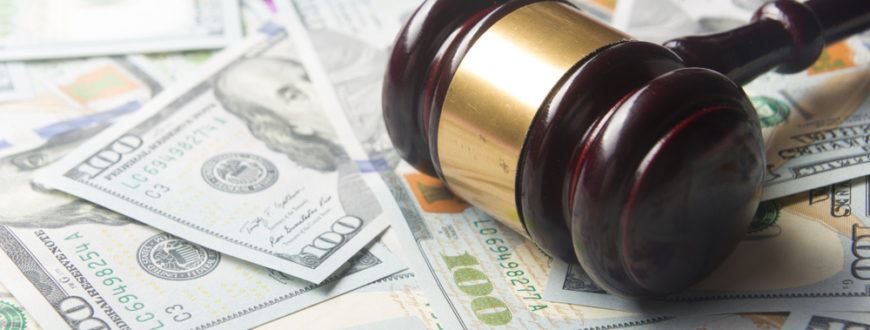What is Bail?
When you’re arrested and placed in jail, one of your initial thoughts is likely, “How do I get out of here?”. One of the ways you can get out of jail is by complying with pre-trial restrictions known as bail. More specifically, bail is the conditional release of an offender that occurs with a promise for them to appear in court when they are required.

Let’s learn a bit more about how bail works to better prepare you if you are ever arrested and sent to jail for a criminal offense or other violation of the law.
Who Sets Bail?
Bail is set by a judge and most often requires the defendant in custody to provide cash, a bond, or property to the court in order to be released from jail until trial and sentencing begin. When you provide this to the court, you are doing so with the promise to return to court on the required date(s) and, if you adhere to all of the conditions set by your bail, you will have the property, cash, or bond returned upon completion of your trial.
Do I Need to Make Bail?
If you’ve committed a minor crime or violation, you may be summoned to court without any need for bail. If you are in custody after your arrest, you may be able to post bail very shortly after being booked at the police station.
If you have committed a more serious crime, however, or have a history of activity that makes the courts believe you will fail to show up for trial proceedings and sentencing hearings, you may be detained in police custody while awaiting the date of your trial. For these suspects, a bail hearing is scheduled within a few days of the detainment, where the judge will determine whether the accused is eligible for bail and if so, at what cost.
If you are considered a “flight risk”, meaning that the judge has reasonable doubt that you will return for your hearings once you pay your bail and are released, the judge may refuse to grant bail, denying you a release. If you are considered to be a danger to the public due to your offense or crime, you may not be eligible for bail at all, meaning you will be detained in police custody until, during, and possibly after trial.
How Much Will My Bond Be?
The amount of bail required by the judge in order to allow your release from custody until your trial will depend on a few things:
- Your alleged charges.
- Prior convictions or arrests.
- Whether or not you have missed previous court dates.
Albers & Associates is Here to Help
If you need legal assistance with an arrest, bail, or any other criminal issue, the professional attorneys at Albers & Associates have the expertise to give you the legal advice you deserve and help you through your case. Contact us today for a free consultation.
The post What is Bail? appeared first on Albers and Associates.